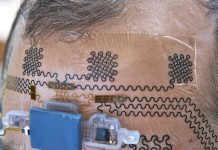
Scientists from the Weizmann Institute of Science found how ketamine works, paving the way toward the development of safe, effective treatments for depression
The research is published in Neuron and was conducted by Alon Chen et al.
Ketamine, a well-known anesthetic used in smaller doses as a party drug, was hailed as a “new hope for depression” in a Time magazine cover story in 2017.
Two years later, the arrival of the first ketamine-based antidepressant—the nasal spray esketamine, made by Johnson & Johnson—was applauded as the most exciting development in the treatment of mood disorders in decades.
Yet the U.S. Food and Drug Administration still limits the spray’s use. It is mainly given to depressed patients who have not been helped by other therapies—in part, because the new drug’s mechanism of action is insufficiently understood, leading to concerns over its safety.
In the study, the team mapped out gene expression in thousands of individual neurons in the brains of mice that had been given a dose of ketamine.
These neurons belong to networks that convey their signals by means of the neurotransmitter glutamate. Ketamine had been known since the 1990s to produce its effects by acting on such neurons—this in contrast to older antidepressants, which mainly affect neurons influenced by serotonin.
The scientists focused on the ventral hippocampus, a brain region that in previous studies had been associated with the antidepressant effects of ketamine.
They identified a subpopulation of neurons with a characteristic genetic signature.
Ketamine had increased these neurons’ expression of a gene called Kcnq2, which encodes a potassium channel—that is, a tunnel that opens up in the cell membrane, enabling the passage of potassium ions.
In a series of experiments, the scientists confirmed their major finding: Ketamine exerts its lasting antidepressant effect by enhancing the Kcnq2 potassium channels in a certain subtype of glutamate-sensitive neurons.
“In the past, other researchers used whole tissue samples, which are composed of different cell types, so ketamine’s effects on specific cell types were averaged out,” Lopez explains.
The researchers then tested ketamine’s effects in combination with an epilepsy drug, retigabine, known to activate potassium channels in the brain.
When the drugs were given together, ketamine’s antidepressant effects were significantly enhanced.
The team says a single dose of retigabine was enough to amplify and prolong ketamine’s antidepressant action in mice.
Not only that, ketamine produced the same benefits when given in smaller doses than usual, which may help reduce its unwanted side effects.
Since both drugs already have FDA approval, the way is open toward testing their combined action in humans.
If you care about depression, please read studies that inflammation can be a core feature of depression, and these depression drugs may lead to a higher death risk.
For more information about mental health please see recent studies about supplements that may help lower anxiety, and results showing people with this mental problem are more than three times likely to have stroke.
Copyright © 2022 Knowridge Science Report. All rights reserved.



